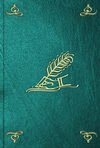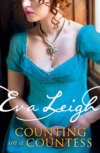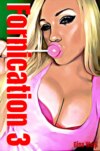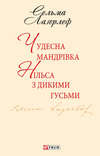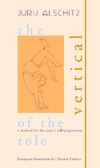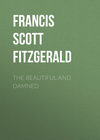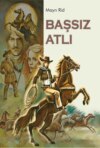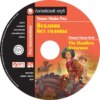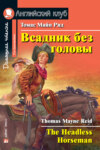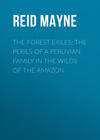Kitabı oku: «The Headless Horseman: A Strange Tale of Texas», sayfa 37
Chapter Seventy Five.
On the Trail
Zeb Stump stayed but a short while on the spot, where he had discovered the hoof-print with the broken shoe.
Six seconds sufficed for its identification; after which he rose to his feet, and continued along the trail of the horse that had made it.
He did not re-mount, but strode forward on foot; the old mare, obedient to a signal he had given her, keeping at a respectful distance behind him.
For more than a mile he moved on in this original fashion – now slowly, as the trail became indistinct – quickening his pace where the print of the imperfect shoe could be seen without difficulty.
Like an archaeologist engaged upon a tablet of hieroglyphic history, long entombed beneath the ruins of a lost metropolis – whose characters appear grotesque to all except himself – so was it with Zeb Stump, as he strode on, translating the “sign” of the prairie.
Absorbed in the act, and the conjectures that accompanied it, he had no eyes for aught else. He glanced neither to the green savannah that stretched inimitably around, nor to the blue sky that spread specklessly above him. Alone to the turf beneath his feet was his eye and attention directed.
A sound – not a sight – startled him from his all-engrossing occupation. It was the report of a rifle; but so distant, as to appear but the detonation of a percussion-cap that had missed fire.
Instinctively he stopped; at the same time raising his eyes, but without unbending his body.
With a quick glance the horizon was swept, along the half dozen points whence the sound should have proceeded.
A spot of bluish smoke – still preserving its balloon shape – was slowly rolling up against the sky. A dark blotch beneath indicated the outlines of an “island” of timber.
So distant was the “motte,” the smoke, and the sound, that only the eye of an experienced prairie-man would have seen the first, or his ear heard the last, from the spot where Zeb Stump was standing.
But Zeb saw the one, and heard the other.
“Durned queery!” he muttered, still stooped in the attitude of a gardener dibbing in his young cabbage-plants.
“Dog-goned queery, to say the leest on’t. Who in ole Nick’s name kin be huntin’ out thur – whar theer ain’t game enuf to pay for the powder an shet? I’ve been to thet ere purayra island; an I know there ain’t nothin’ thur ’ceptin’ coyoats. What they get to live on, only the Eturnal kin tell!”
“Wagh!” he went on, after a short silence. “Some storekeeper from the town, out on a exkurshun, as he’d call it, who’s proud o’ poppin’ away at them stinkin’ varmints, an ’ll go hum wi’ a story he’s been a huntin’ wolves! Wal. ’Tain’t no bizness o’ myen. Let yurd-stick hev his belly-ful o’ sport. Heigh! thur’s somethin’ comin’ this way. A hoss an somebody on his back – streakin’ it as if hell war arter him, wi’ a pitchfork o’ red-het lightnin’! What! As I live, it air the Headless! It is, by the jumpin’ Geehosophat!”
The observation of the old hunter was quite correct. There could be no mistake about the character of the cavalier, who, just clearing himself from the cloud of sulphureous smoke – now falling, dispersed over the prairie – came galloping on towards the spot where Zeb stood. It was the horseman without a head.
Nor could there be any doubt as to the direction he was taking – as straight towards Zeb as if he already saw, and was determined on coming up with him!
A braver man than the backwoodsman could not have been found within the confines of Texas. Cougar, or jaguar – bear, buffalo, or Red Indian – he could have encountered without quailing. Even a troop of Comanches might have come charging on, without causing him half the apprehension felt at sight of that solitary equestrian.
With all his experience of Nature in her most secret haunts – despite the stoicism derived from that experience – Zeb Stump was not altogether free from superstitious fancies. Who is?
With the courage to scorn a human foe – any enemy that might show itself in a natural shape, either of biped or quadruped – still was he not stern enough to defy the abnormal; and Bayard himself would have quailed at sight of the cavalier who was advancing to the encounter – apparently determined upon its being deadly!
Zeb Stump not only quailed; but, trembling in his tall boots of alligator leather, sought concealment.
He did so, long before the Headless Horseman had got within hailing distance; or, as he supposed, within sight of him.
Some bushes growing close by gave him the chance of a hiding place; of which, with instinctive quickness, he availed himself.
The mare, standing saddled by his side, might still have betrayed him?
But, no. He had not gone to his knees, without thinking of that.
“Hunker down!” he cried, addressing himself to his dumb companion, who, if wanting speech, proved herself perfect in understanding. “Squat, ye ole critter; or by the Eturnal ye’ll be switched off into hell!”
As if dreading some such terrible catastrophe, the scraggy quadruped dropped down upon her fore knees; and then, lowering her hind quarters, laid herself along the grass, as though thinking her day’s work done – she was free to indulge in a fiesta.
Scarce had Zeb and his roadster composed themselves their new position, when the Headless Horseman came charging up.
He was going at full speed; and Zeb was but too well pleased to perceive that he was likely to continue it.
It was sheer chance that had conducted him that way; and not from having seen either the hunter or his sorry steed.
The former – if not the latter – was satisfied at being treated in that cavalier style; but, long before the Headless Horseman had passed out of sight, Zeb had taken his dimensions, and made himself acquainted with his character.
Though he might be a mystery to all the world beside, he was no longer so to Zebulon Stump.
As the horse shot past in fleet career, the skirt of the serapé, flouted up by the wind, displayed to Stump’s optics a form well known to him – in a dress he had seen before. It was a blouse of blue cottonade, box-plaited over the breast; and though its vivid colour was dashed with spots of garish red, the hunter was able to recognise it.
He was not so sure about the face seen low down upon the saddle, and resting against the rider’s leg.
There was nothing strange in his inability to recognise it.
The mother, who had oft looked fondly on that once fair countenance, would not have recognised it now.
Zeb Stump only did so by deduction. The horse, the saddle, the holsters, the striped blanket, the sky-blue coat and trousers – even the hat upon the head – were all known to him. So, too, was the figure that stood almost upright in the stirrups. The head and face must belong to the same – notwithstanding their unaccountable displacement.
Zeb saw it by no uncertain glance. He was permitted a full, fair view of the ghastly spectacle.
The steed, though going at a gallop, passed within ten paces of him.
He made no attempt to interrupt the retreating rider – either by word or gesture. Only, as the form became unmasked before his eyes, and its real meaning flashed across his mind, he muttered, in a slow, sad tone:
“Gee-hos-o-phat! It air true, then! Poor young fellur – dead – dead!”
Chapter Seventy Six.
Lost in the Chalk
Still continuing his fleet career, the Headless Horseman galloped on over the prairie – Zeb Stump following only with his eyes; and not until he had passed out of sight, behind some straggling groves of mezquite, did the backwoodsman abandon his kneeling position.
Then only for a second or two did he stand erect – taking council with himself as to what course he should pursue.
The episode – strange as unexpected – had caused some disarrangement in his ideas, and seemed to call for a change in his plans. Should he continue along the trail he was already deciphering; or forsake it for that of the steed that had just swept by?
By keeping to the former, he might find out much; but by changing to the latter he might learn more?
He might capture the Headless Horseman, and ascertain from him the why and wherefore of his wild wanderings?
While thus absorbed, in considering what course he had best take, he had forgotten the puff of smoke, and the report heard far off over the prairie.
Only for a moment, however. They were things to be remembered; and he soon remembered them.
Turning his eyes to the quarter where the smoke had appeared, he saw that which caused him to squat down again; and place himself, with more impressement than ever, under cover of the mezquites. The old mare, relishing the recumbent attitude, had still kept to it; and there was no necessity for re-disposing of her.
What Zeb now saw was a man on horseback – a real horseman, with a head upon his shoulders.
He was still a long way off; and it was not likely he had seen the tall form of the hunter, standing shored up among the bushes – much less the mare, lying beneath them. He showed no signs of having done so.
On the contrary, he was sitting stooped in the saddle, his breast bent down to the pommel, and his eyes actively engaged in reading the ground, over which he was guiding his horse.
There could be no difficulty in ascertaining his occupation. Zeb Stump guessed it at a glance. He was tracking the headless rider.
“Ho, ho!” muttered Zeb, on making this discovery; “I ain’t the only one who’s got a reezun for solvin’ this hyur myst’ry! Who the hell kin he be? I shed jest like to know that.”
Zeb had not long to wait for the gratification of his wish. As the trail was fresh, the strange horseman could take it up at a trot – in which pace he was approaching.
He was soon within identifying distance.
“Gee – hosophat!” muttered the backwoodsman; “I mout a know’d it wud be him; an ef I’m not mistook about it, hyurs goin’ to be a other chapter out o’ the same book – a other link as ’ll help me to kumplete the chain o’ evydince I’m in sarch for. Lay clost, ye critter! Ef ye make ere a stir – even to the shakin’ o’ them long lugs o’ yourn – I’ll cut yur darned throat.”
The last speech was an apostrophe to the “maar” – after which Zeb waxed silent, with his head among the spray of the acacias, and his eyes peering through the branches in acute scrutiny of him who was coming along.
This was a man, who, once seen, was not likely to be soon forgotten. Scarce thirty years old, he showed a countenance, scathed, less with care than the play of evil passions.
But there was care upon it now – a care that seemed to speak of apprehension – keen, prolonged, yet looking forward with a hope of being relieved from it.
Withal it was a handsome face: such as a gentleman need not have been ashamed of, but for that sinister expression that told of its belonging to a blackguard.
The dress – but why need we describe it? The blue cloth frock of semi-military cut – the forage cap – the belt sustaining a bowie-knife, with a brace of revolving pistols – all have been mentioned before as enveloping and equipping the person of Captain Cassius Calhoun.
It was he.
It was not the batterie of small arms that kept Zeb Stump from showing himself. He had no dread of an encounter with the ex-officer of Volunteers. Though he instinctively felt hostility, he had as yet given no reason to the latter for regarding him as an enemy. He remained in shadow, to have a better view of what was passing under the sunlight.
Still closely scrutinising the trail of the Headless Horseman, Calhoun trotted past.
Still closely keeping among the acacias, Zeb Stump looked after, till the same grove, that had concealed the former, interposed its verdant veil between him and the ex-captain of cavalry.
The backwoodsman’s brain having become the recipient of new thoughts, required a fresh exercise of its ingenuity.
If there was reason before for taking the trail of the Headless Horseman, it was redoubled now.
With but short time spent in consideration, so Zeb concluded; and commenced making preparations for a stalk after Cassius Calhoun.
These consisted in taking hold of the bridle, and giving the old mare a kick; that caused her to start instantaneously to her feet.
Zeb stood by her side, intending to climb into the saddle and ride out into the open plain – as soon as Calhoun should be out of sight.
He had no thoughts of keeping the latter in view. He needed no such guidance. The two fresh trails would be sufficient for him; and he felt as sure of finding the direction in which both would lead, as if he had ridden alongside the horseman without a head, or him without a heart.
With this confidence he cleared out from among the acacias, and took the path just trodden by Calhoun.
For once in his life, Zeb Stump had made a mistake. On rounding the mezquite grove, behind which both had made disappearance, he discovered he had done so.
Beyond, extended a tract of chalk prairie; over which one of the horsemen appeared to have passed – him without the head.
Zeb guessed so, by seeing the other, at some distance before him, riding to and fro, in transverse stretches, like a pointer quartering the stubble in search of a partridge.
He too had lost the trail, and was endeavouring to recover it.
Crouching under cover of the mezquites, the hunter remained a silent spectator of his movements.
The attempt terminated in a failure. The chalk surface defied interpretation – at least by skill such as that of Cassius Calhoun.
After repeated quarterings he appeared to surrender his design; and, angrily plying the spur, galloped off in the direction of the Leona.
As soon as he was out of sight, Zeb also made an effort to take up the lost trail. But despite his superior attainments in the tracking craft, he was compelled to relinquish it.
A fervid sun was glaring down upon the chalk; and only the eye of a salamander could have withstood the reflection of its rays.
Dazed almost to blindness, the backwoodsman determined upon turning late back; and once more devoting his attention to the trail from which he had been for a time seduced.
He had learnt enough to know that this last promised a rich reward for its exploration.
It took him but a short time to regain it.
Nor did he lose any in following it up. He was too keenly impressed with its value; and with this idea urging him, he strode rapidly on, the mare following as before.
Once only did he make pause; at a point where the tracks of two horses converged with that he was following.
From this point the three coincided – at times parting and running parallel, for a score of yards or so, but again coming together and overlapping one another.
The horses were all shod – like that which carried the broken shoe – and the hunter only stopped to see what he could make out of the hoof marks. One was a “States horse;” the other a mustang – though a stallion of great size, and with a hoof almost as large as that of the American.
Zeb had his conjectures about both.
He did not stay to inquire which had gone first over the ground. That was as clear to him, as if he had been a spectator at their passing. The stallion had been in the lead, – how far Zeb could not exactly tell; but certainly some distance beyond that of companionship. The States horse had followed; and behind him, the roadster with the broken shoe – also an American.
All three had gone over the same ground, at separate times, and each by himself. This Zeb Stump could tell with as much ease and certainty, as one might read the index of a dial, or thermometer.
Whatever may have been in his thoughts, he said nothing, beyond giving utterance to the simple exclamation “Good!” and, with satisfaction stamped upon his features, he moved on, the old mare appearing to mock him by an imitative stride!
“Hyur they’ve seppurated,” he said, once again coming to a stop, and regarding the ground at his feet. “The stellyun an States hoss hev goed thegither – thet air they’ve tuk the same way. Broken-shoe hev strayed in a diffrent direkshun.”
“Wonder now what thet’s for?” he continued, after standing awhile to consider. “Durn me ef I iver seed sech perplexin’ sign! It ud puzzle ole Dan’l Boone hisself.”
“Which on ’em shed I foller fust? Ef I go arter the two I know whar they’ll lead. They’re boun’ to kim up in thet puddle o’ blood. Let’s track up tother, and see whether he hev rud into the same procksimmuty! To the right abeout, ole gal, and keep clost ahint me – else ye may get lost in the chapparal, an the coyoats may make thur supper on yur tallow. Ho! ho! ho!”
With this apostrophe to his “critter,” ending in a laugh at the conceit of her “tallow,” the hunter turned off on the track of the third horse.
It led him along the edge of an extended tract of chapparal; which, following all three, he had approached at a point well known to him, as to the reader, – where it was parted by the open space already described.
The new trail skirted the timber only for a short distance. Two hundred yards from the embouchure of the avenue, it ran into it; and fifty paces further on Zeb came to a spot where the horse had stood tied to a tree.
Zeb saw that the animal had proceeded no further: for there was another set of tracks showing where it had returned to the prairie – though not by the same path.
The rider had gone beyond. The foot-marks of a man could be seen beyond – in the mud of a half-dry arroyo– beside which the horse had been “hitched.”
Leaving his critter to occupy the “stall” where broken-shoe had for some time fretted himself, the old hunter glided off upon the footmarks of the dismounted rider.
He soon discovered two sets of them – one going – another coming back.
He followed the former.
He was not surprised at their bringing him out into the avenue – close to the pool of blood – by the coyotés long since licked dry.
He might have traced them right up to it, but for the hundreds of horse tracks that had trodden the ground like a sheep-pen.
But before going so far, he was stayed by the discovery of some fresh “sign” – too interesting to be carelessly examined. In a place where the underwood grew thick, he came upon a spot where a man had remained for some time. There was no turf, and the loose mould was baked hard and smooth, evidently by the sole of a boot or shoe.
There were prints of the same sole leading out towards the place of blood, and similar ones coming back again. But upon the branches of a tree between, Zeb Stump saw something that had escaped the eyes not only of the searchers, but of their guide Spangler – a scrap of paper, blackened and half-burnt – evidently the wadding of a discharged gun!
It was clinging to the twig of a locust-tree, impaled upon one of its spines!
The old hunter took it from the thorn to which, through rain and wind, it had adhered; spread it carefully across the palm of his horny hand; and read upon its smouched surface a name well known to him; which, with its concomitant title, bore the initials, “C.C.C.”
Chapter Seventy Seven.
Another Link
It was less surprise, than gratification, that showed itself on the countenance of Zeb Stump, as he deciphered the writing on the paper.
“That ere’s the backin’ o’ a letter,” muttered he. “Tells a goodish grist o’ story; more’n war wrote inside, I reck’n. Been used for the wad’ o’ a gun! Wal; sarves the cuss right, for rammin’ down a rifle ball wi’ a patchin’ o’ scurvy paper, i’stead o’ the proper an bessest thing, which air a bit o’ greased buckskin.”
“The writin’ air in a sheemale hand,” he continued, looking anew at the piece of paper. “Don’t signerfy for thet. It’s been sent to him all the same; an he’s hed it in purzeshun. It air somethin’ to be tuk care o’.”
So saying, he drew out a small skin wallet, which contained his tinder of “punk,” along with his flint and steel; and, after carefully stowing away the scrap of paper, he returned the sack to his pocket.
“Wal!” he went on in soliloquy, as he stood silently considering, “I kalkerlate as how this ole coon ’ll be able to unwind a good grist o’ this clue o’ mystery, tho’ thur be a bit o’ the thread broken hyur an thur, an a bit o’ a puzzle I can’t clurly understan’. The man who hev been murdered, whosomdiver he may be, war out thur by thet puddle o’ blood, an the man as did the deed, whosomdiver he be, war a stannin’ behint this locust-tree. But for them greenhorns, I mout a got more out o’ the sign. Now thur ain’t the ghost o’ a chance. They’ve tramped the hul place into a durnationed mess, cuvortin’ and caperin’ abeout.
“Wal, ’tair no use goin’ furrer thet way. The bessest thing now air to take the back track, if it air possable, an diskiver whar the hoss wi’ the broke shoe toted his rider arter he went back from this leetle bit o’ still-huntin’. Thurfor, ole Zeb’lon Stump, back ye go on the boot tracks!”
With this grotesque apostrophe to himself, he commenced retracing the footmarks that had guided him to the edge of the opening. Only in one or two places were the footprints at all distinct. But Zeb scarce cared for their guidance.
Having already noted that the man who made them had returned to the place where the horse had been left, he knew the back track would lead him there.
There was one place, however, where the two trails did not go over the same ground. There was a forking in the open list, through which the supposed murderer had made his way. It was caused by an obstruction, – a patch of impenetrable thicket. They met again, but not till that on which the hunter was returning straggled off into an open glade of considerable size.
Having become satisfied of this, Zeb looked around into the glade – for a time forsaking the footsteps of the pedestrian.
After a short examination, he observed a trail altogether distinct, and of a different character. It was a well-marked path entering the opening on one side, and going out on the other: in short, a cattle-track.
Zeb saw that several shod horses had passed along it, some days before: and it was this that caused him to come back and examine it.
He could tell to a day – to an hour —when the horses had passed; and from the sign itself. But the exercise of his ingenuity was not needed on this occasion. He knew that the hoof-prints were those of the horses ridden by Spangler and his party – after being detached from the main body of searchers who had gone home with the major.
He had heard the whole story of that collateral investigation – how Spangler and his comrades had traced Henry Poindexter’s horse to the place where the negro had caught it – on the outskirts of the plantation.
To an ordinary intellect this might have appeared satisfactory. Nothing more could be learnt by any one going over the ground again.
Zeb Stump did not seem to think so. As he stood looking along it, his attitude showed indecision.
“If I ked make shur o’ havin’ time,” he muttered, “I’d foller it fust. Jest as like as not I’ll find a fluke thur too. But thur’s no sartinty ’beout the time, an I’d better purceed to settle wi’ the anymal as cast the quarter shoe.”
He had turned to go out of the glade, when a thought once more stayed him.
“Arter all, it kin be eezy foun’ at any time. I kin guess whar it’ll lead, as sartint, as if I’d rud ’longside the skunk thet made it – straight custrut to the stable o’ Caser Corver.
“It’s a durned pity to drop this un, – now whiles I’m hyur upon the spot. It’ll gie me the makin’ o’ another ten-mile jurney, an thur moutn’t be time. Dog-goned ef I don’t try a leetle way along it. The ole maar kin wait till I kum back.”
Bracing himself for a new investigation, he started off upon the cattle-track, trodden by the horses of Spangler and his party.
To the hoof-marks of these he paid but slight attention; at times, none whatever. His eye only sought those of Henry Poindexter’s horse. Though the others were of an after time, and often destroyed the traces he was most anxious to examine, he had no difficulty in identifying the latter. As he would have himself said, any greenhorn could do that. The young planter’s horse had gone over the ground at a gallop. The trackers had ridden slowly.
As far as Zeb Stump could perceive, the latter had made neither halt nor deviation. The former had.
It was about three-quarters of a mile from the edge of the venue.
It was not a halt the galloping horse had made, but only a slight departure from his direct course; as if something he had seen – wolf, jaguar, cougar, or other beast of prey – had caused him to shy.
Beyond he had continued his career; rapid and reckless as ever.
Beyond the party along with Spangler had proceeded – without staying to inquire why the horse had shied from his track.
Zeb Stump was more inquisitive, and paused upon this spot.
It was a sterile tract, without herbage, and covered with shingle and sand. A huge tree overshadowed it, with limbs extending horizontally. One of these ran transversely to the path over which the horses had passed – so low that a horseman, to shun contact with it, would have to lower his head. At this branch Zeb Stump stood gazing. He observed an abrasion upon the bark; that, though very slight, must have been caused by contact with some substance, as hard, if not sounder, than itself.
“Thet’s been done by the skull o’ a human critter,” reasoned he – “a human critter, that must a been on the back o’ a hoss – this side the branch, an off on the t’other. No livin’ man ked a stud sech a cullizyun as thet, an kep his seat i’ the seddle.
“Hooraw!” he triumphantly exclaimed, after a cursory examination of the ground underneath the tree. “I thort so. Thur’s the impreshun o’ the throwed rider. An’ thur’s whar he hez creeped away. Now I’ve got a explication o’ thet big bump as hez been puzzlin’ me. I know’d it wan’t did by the claws o’ any varmint; an it didn’t look like the blow eyther o’ a stone or a stick. Thet ere’s the stick that hez gi’n it.”
With an elastic step – his countenance radiant of triumph – the old hunter strode away from the tree, no longer upon the cattle path, but that taken by the man who had been so violently dismounted.
To one unaccustomed to the chapparal, he might have appeared going without a guide, and upon a path never before pressed by human foot.
A portion of it perhaps had not. But Zeb was conducted by signs which, although obscure to the ordinary eye, were to him intelligible as the painted lettering upon a finger-post. The branch contorted to afford passage for a human form – the displaced tendrils of a creeping plant – the scratched surface of the earth – all told that a man had passed that way. The sign signified more – that the man was disabled – had been crawling – a cripple!
Zeb Stump continued on, till he had traced this cripple to the banks of a running stream.
It was not necessary for him to go further. He had made one more splice of the broken thread. Another, and his clue would be complete!





